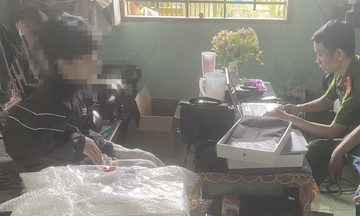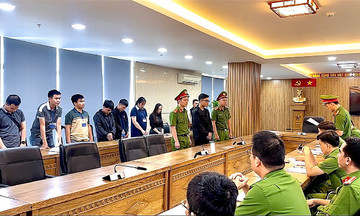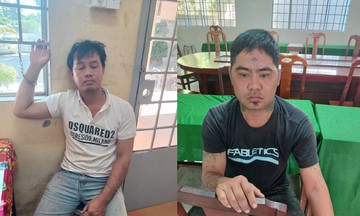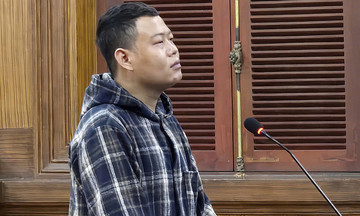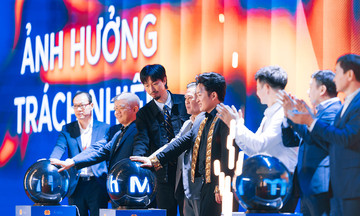The Ho Chi Minh City Public Security Investigation Agency concluded its investigation on July 12, accusing Dinh Truong Chinh, 51, former chairman of the Housing Development and Trading Joint Stock Company (HDTC), Huynh The Nang, 66, former general director of Vinafood II, and Nguyen Tho Tri, 64, former deputy general director of Vinafood II, of violating regulations on the management and use of state assets, causing loss and waste under Article 219 of the penal code. The case file has been transferred to the People's Procuracy of the same level for prosecution.
Vinafood II, a wholly state-owned enterprise, was entrusted with managing properties at 33 Nguyen Du and 34, 36, and 42 Chu Manh Trinh streets in Ben Nghe Ward, District 1. In 2010, after fulfilling financial obligations exceeding 766 billion VND, Vinafood II received a land use right certificate from the Ho Chi Minh City People's Committee for the construction of a hotel, office building, and commercial center on this land.
Between 2014 and 2015, due to financial losses, Vinafood II sought to dispose of these 4 properties to recover capital and repay debts.
Investigators allege that Chinh, representing Viet Han Company, exploited this situation by repeatedly submitting purchase requests for the land. To avoid public auction, Chinh allegedly colluded with Nang to employ a "capital contribution and divestment" scheme, establishing Viet Han Sai Gon Company to legitimize the transfer and continue the project.
With approval from competent authorities, the transfer price was set at 730 billion VND, including 570 billion VND for the capital contribution and 160 billion VND for Vinafood II's 20% divestment. On 23/12/2015, Vinafood II and Viet Han Company signed a capital contribution and land use right transfer contract. Chinh committed to continuing the project. However, just 33 days later, he sold 99% of his stake in Viet Han Sai Gon (equivalent to 99% of the land value) to Mua Dong Limited Liability Company (a legal entity fronted by another individual) for 1,683 billion VND.
To conceal the transfer, Chinh allegedly used his Canadian cousin, Tran, as an intermediary. On 30/1/2016, he transferred 99% of the stake to Tran for 792 billion VND. Two days later, she transferred the entire stake to Mua Dong Company for 1,683 billion VND. The 891 billion VND difference was reportedly paid by Mua Dong Company to Tran's personal account, withdrawn in cash, and then deposited into Viet Han Company's and Chinh's accounts.
Chinh has denied any wrongdoing. The investigation agency asserts the land was state property, requiring a public auction for transfer, and that the transfer was illegal without government authorization. The transfer, facilitated by the prior agreement between Chinh and Nang, allegedly resulted in a 970 billion VND loss to the state, for which Chinh is held criminally responsible.
Nang admitted wrongdoing but denied causing the 970 billion VND loss. The authorities attribute his actions to misinterpreting regulations and superior directives. While no material benefit has been confirmed, there are grounds to suspect he received material or non-material benefits.
Tri is accused of aiding Nang in legitimizing the land transfer. The actions of both Nang and Tri are attributed to misunderstanding regulations and superior directives, with no evidence of material benefit from the case.
HDTC, formerly a state-owned company under the Department of Land and Public Works, was established in 1984 and equitized in 2016 with a charter capital of over 2,200 billion VND. As of the end of 2023, it was a member company under Saigon Real Estate Corporation Limited Liability Company (owning 30% of the charter capital) and employed nearly 1,000 staff.
Between 1998 and 2005, HDTC undertook several large residential projects in Ho Chi Minh City, such as the 10-hectare Binh Trung Residential Area (District 2); the 28-hectare Binh Tri Dong Residential Area (Binh Chanh District); the 131-hectare An Phu - An Khanh New Urban Area (District 2); the 65-hectare An Suong Residential Area (District 12); and the 5-hectare Tan Duc An Residential Area (Thu Duc District). The company also implemented several large resettlement projects for the city.
Quoc Thang



